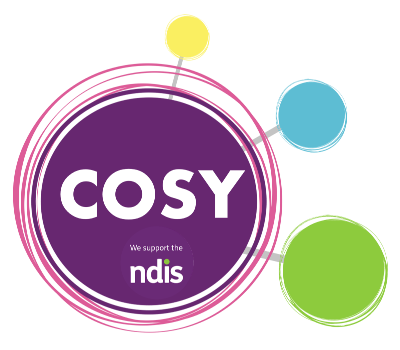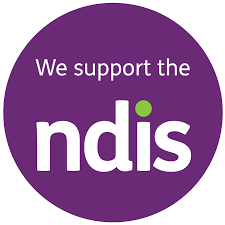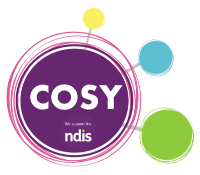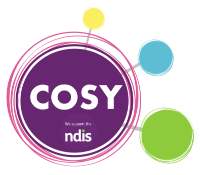How Assistive Technology is Transforming Lives for All Individuals
Dive deep into the world of assistive technology and discover how it is revolutionizing the concept of inclusive communities by significantly enhancing accessibility for individuals with disabilities. Explore the wide array of innovative tools and valuable resources that are available to promote social inclusion and bolster community engagement.

Introduction: Why Assistive Technology Matters
In today’s digital age, technology plays a vital role in how we live, work, and connect. For individuals with disabilities, technology provides more than convenience—it opens doors to independence, empowerment, and equal opportunity. This is where Assistive Technology (AT) comes in.
At CosyCoordination, we understand how life-changing assistive technology can be. Our role is to support participants in navigating the NDIS process so they can access the right tools to live more independently and confidently.
What is Assistive Technology?
Assistive Technology refers to tools, devices, systems, or services that support people with disabilities in carrying out everyday tasks. Its main purpose is to improve functionality, independence, and accessibility.
Examples range from simple items like magnifiers and adaptive utensils to advanced technologies such as speech-generating devices, smart home automation, and exoskeletons.
If you’re not sure which supports might be right for you, CosyCoordination can guide you in selecting assistive technologies and adding them to your NDIS plan.
Types of Assistive Technology
Here are some of the most common categories of assistive technology:
1. Mobility Aids
Wheelchairs, prosthetics, canes, and scooters help individuals move around safely and independently.
2. Communication Devices
Speech-to-text software, augmentative communication apps, and voice-output systems bridge communication gaps.
3. Hearing and Vision Support
Hearing aids, cochlear implants, braille readers, and screen readers enhance accessibility for people with sensory impairments.
4. Learning and Cognitive Support
Specialized apps, memory aids, and digital learning platforms support individuals with cognitive or learning disabilities.
5. Smart Home Technology
Voice-activated assistants, automated lighting, and accessible control systems provide independence in everyday living.
At Cosy Coordination, we can help match you with the right category of assistive technology based on your personal needs and goals.
How Assistive Technology Builds Inclusive Communities
The real power of assistive technology is its ability to transform society as a whole. It not only benefits individuals with disabilities but also enriches the entire community.
- In Education: Accessible tools ensure equal learning opportunities for all students.
- In Employment: Adaptive software and workplace accommodations allow people with disabilities to thrive professionally.
- In Healthcare: Remote monitoring and wearable tech improve access to care and support wellbeing.
- In Social Life: AT fosters participation in social, cultural, and recreational activities, strengthening community bonds.
By working with providers like Cosy Coordination, individuals and families can better understand how to use the NDIS to fund these supports, ensuring greater access and inclusion.
The Future of Assistive Technology
With rapid advancements in artificial intelligence, robotics, and smart devices, assistive technology is becoming even more innovative. Future developments may include:
- Exoskeleton suits to assist with mobility.
- AI-powered accessibility apps for real-time support.
- Eye-tracking systems for communication and control.
- Virtual and augmented reality for inclusive learning and training.
As these technologies evolve, Cosy Coordination remains committed to helping participants integrate them into their plans, so they can benefit from the latest advancements.
FAQs About Assistive Technology
1. Who can benefit from assistive technology?
Anyone with a disability, whether physical, cognitive, sensory, or learning-related, can benefit from AT. It’s also helpful for seniors and people recovering from injuries.
2. Is assistive technology expensive?
Costs vary depending on the device, but government programs, funding schemes, and nonprofits often provide financial support. Through the NDIS,
CosyCoordination can help you explore your funding options.
3. How does assistive technology support inclusion?
By removing barriers in communication, mobility, education, and employment, AT ensures people with disabilities can fully participate in society.
4. What is the difference between assistive technology and adaptive technology?
Assistive technology is designed specifically to aid individuals with disabilities, while adaptive technology refers to modifications of existing tools to make them accessible.
Conclusion
Assistive technology is a powerful driver of inclusion. By bridging gaps in accessibility, it empowers individuals with disabilities to live independently, pursue education, secure employment, and participate fully in community life.
As innovations continue to evolve, assistive technology will play an even greater role in building inclusive, equitable communities where everyone can thrive.
💡 If you’re considering adding assistive technology to your NDIS plan, contact Cosy Coordination. Our team can guide you through the process and help ensure you have the right supports in place to make the most of these life-changing tools.



